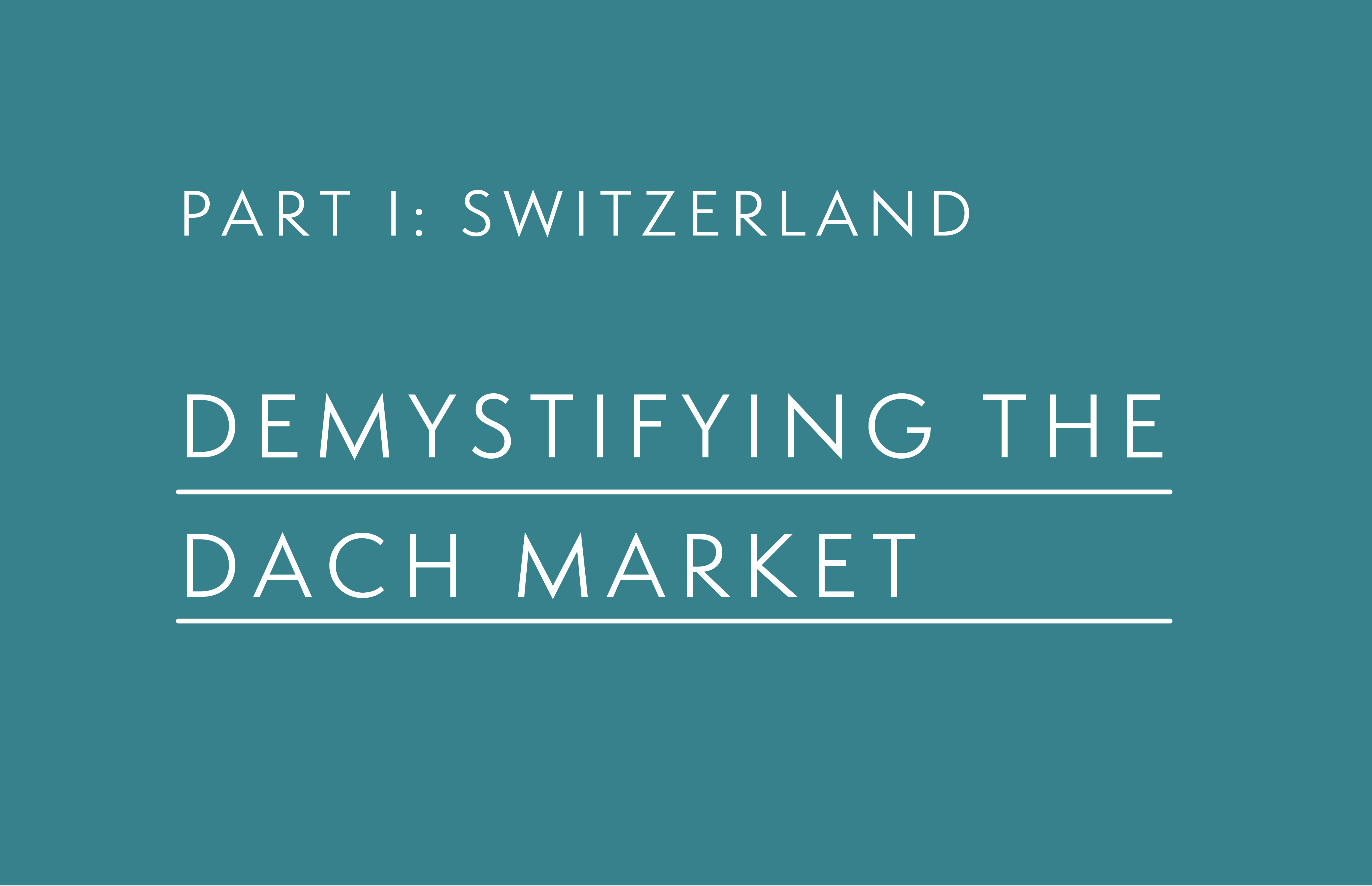Europe’s three German-speaking countries are often grouped under the umbrella term “DACH market”, comprised of Germany (D), Austria (A) and Switzerland (CH). The most dominant economy in the group is of course Germany. Due to its sheer size, number of inhabitants, and high GDP, Germany leaves Austria and Switzerland, as well as most other European economies, rather far behind. However, the two smaller parts of the DACH market should not be ignored or neglected when it comes to doing business in the German-speaking market, and a small amount of cultural awareness can go a long way. In part 1 of “Demystifying the DACH market”, we will have a closer look at Switzerland.
“LA SUISSE N’EXISTE PAS”#
“Switzerland does not exist” was the motto of the Swiss Pavilion at the 1992 world exhibition in Sevilla. The provocative statement by artist Ben Vautier contrasted multicultural and multilingual Switzerland with the world exhibition’s dominating themes of nation branding and national identity, and is still relevant today. Switzerland is officially referred to as “The Swiss Confederation” and is comprised of 26 cantons. Formally a sovereign state, the Swiss cantons were joined together as the Swiss Confederation in the course of the 19th century, and each canton has its own executive, legislature, and constitution. Switzerland has 8.5 million inhabitants, four official languages, a wide variety of dialects, and draws many international expats year on year. Language and identity are closely intertwined, and Vautier’s “Switzerland does not exist” refers to the country’s resulting diversity. Switzerland is often described as a “will nation”, meaning that it is believed that the will to act and live as a unified nation is what keeps Switzerland and Swiss people together rather than a strong national identity. Nonetheless, the terms “Swissness” and “Swiss-made” were coined in Switzerland around 1990 to promote positive Swiss attributes and values, such as precision and reliability (think watches).
SWITZERLAND AND ITS LANGUAGES#
The largest language group in Switzerland is Swiss German speakers, which is why Switzerland is generally seen as a part of the DACH market. Swiss German is predominantly spoken in 19 out of 26 cantons and by 63.5% of the population. French is the second largest language community (22.5%), spoken in four cantons in Western Switzerland as the main language and as a second language alongside Swiss German in three more. Italian (8.1%) is the main language in the southern canton Tessin and spoken in some parts of the canton Graubünden. As a result, Graubünden is the only canton with 3 official languages, and home to the fourth official language in Switzerland: Romansh. This very old and fascinating Romance language is spoken by 0.5% of Swiss people and can be subdivided into 5-6 different variations just within Graubünden. Like many minority languages, Romansh languages are endangered and at risk of extinction. If you do the maths, the remaining 5.4% of the Swiss population are internationals living in Switzerland with a native language different to Switzerland’s four official languages.
LOCALISATION AND ECOMMERCE#
Switzerland might be a relatively small market, but it punches far above its weight. It has the highest purchasing power in the DACH market and an internet penetration rate of 88%. The Swiss Federal Statistics Office recently conducted a study that focused on internet use and ecommerce in Switzerland from 2010 to 2017. It found that in 2017, 4.9 million people living in Switzerland shopped online at least once within 12 months, an increase of 50% compared to 2010. The study also looked into which goods and items Swiss people purchase online. Flight and travel tickets came in first place, closely followed by fashion, sports gear, as well as holiday and hotel bookings. Cross-border online sales and mail-orders were worth an estimated 1.6 billion Swiss Francs in 2017.
Language diversity cannot be ignored when attempting to successfully target the Swiss market. Offering your website in French, Italian and Swiss German is recommended, as well as implementing the correct hreflang attributes on the way. When it comes to correct localisation, there are some pitfalls. The variations of German, French and Italian written and spoken in Switzerland differ quite significantly from the standard languages. Swiss German uses a lot of different idioms and expressions compared to Standard High German, which is especially relevant for localised Keyword Research. You can quickly miss out on high ranking keywords when certain local variations are not taken into account. Differences also exist when it comes to spelling, grammar and punctuation.
For ecommerce, it’s worth noting that currency symbols come before the amount, and an apostrophe is used instead of a period (English) or a comma (Standard German). For example, you would pay CHF 5’000’000 to buy a nice apartment in Switzerland. It is therefore advisable to work with native linguists or German speakers with an awareness of these particularities and nuances to offer the best possible content for Swiss customers.
With the continued strong growth trend for ecommerce in Switzerland, it’s obviously a market well worth investing in. When localising for the Swiss market, keep its rich cultural diversity in mind to perfectly target your Swiss audience and set yourself and your business up for success. To find out how Locaria can help you localise your website for the DACH market and beyond, visit our services page and keep an eye out for the next blog post in this series, coming soon.



